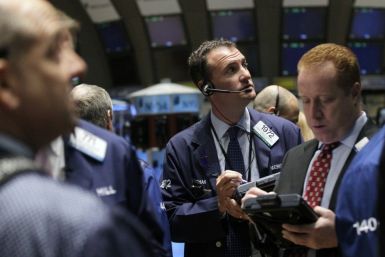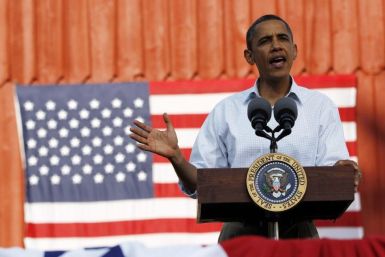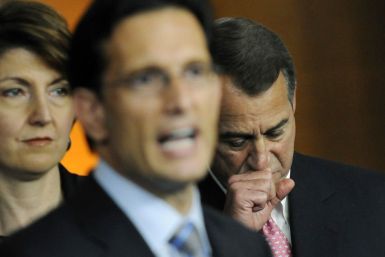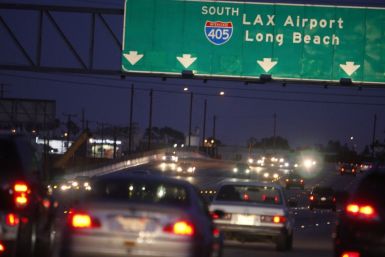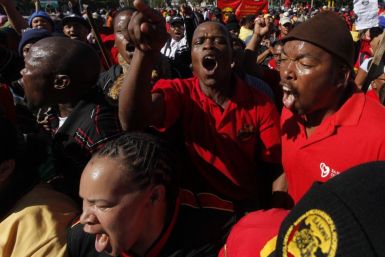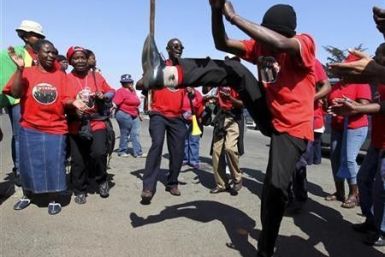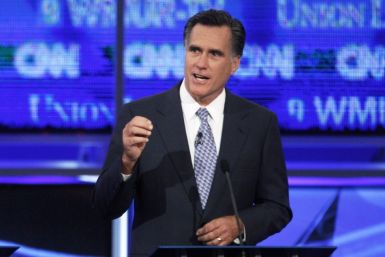Nigeria's headline inflation unexpectedly fell in July, data showed, reaching its lowest level for more than three years following an aggressive period of monetary tightening by the central bank.
President Obama began his bus tour through Minnesota, Iowa, and Illinois on Monday as he set out to improve his image in the wake of low approval ratings.
Sales at Wal-Mart Stores Inc's U.S. discount stores open at least a year fell 0.9 percent during its second quarter, marking the ninth straight quarterly decline as it tries to lure back bargain hunters.
Debt concerns in Europe and a tepid U.S. economy have made for a bumpy stock market of late, to day the least. However, because one-day events can deceive, let's pull the lens back and do a condensed, cross-methodological analysis of the Dow Jones Industrial Average, to see if it reveals any long-term clues.
President Barack Obama will on Tuesday announce fresh steps to boost rural hiring on the second day of a bus tour through the heartland to explain his economic and job policies to anxious voters.
Wal-Mart's big box retailing strategy has peaked as consumer shopping habits are changing.
Wal-Mart posted higher profits, but the company is dealing with a protracted slump in U.S. same-store sales, as shopping habits shift.
President Barack Obama declared Monday night he has a jobs plan. He said he'll send it to Congress in September.
Starbucks' (SBUX) Chief Executive Officer Howard Schultz has a solution for the nation's partisan political divide that's prevented (so far) a substantive, long-term plan to cut the budget deficit: boycott donating to political campaigns.
For about a year, the city of Philadelphia, Penn. has been plagued by random, violent flash mobs, with gangs of youth suddenly overrunning busy streets. With Mayor Nutter's new curfew plan, now in place, will the trend finally cease?
For weeks during the rancorous debate over the debt ceiling limit, Americans were treated to the widely televised spectacle of their lawmakers drubbing each other in a bruising partisan jousting match.
President Barack Obama blasted Republicans over taxes on Monday as he launched a bus tour of the U.S. Midwest to tout his job-growth strategy and distance himself from anger toward Washington that could dent his 2012 re-election hopes.
Some would have you believe the U.S. Congress can't do much to create jobs: not true. If Congress says "build us an aircraft carrier," a short time later, an aircraft carrier will appear. Likewise for roads, bridges, schools, hospitals, and the electric grid -- all of which in the U.S. need work and would create jobs.
South Africa is in the midst of a massive waves of strikes by tens of thousands of workers across many industries which threaten to paralyze the national economy.
More than 200,000 South African municipal workers walked off the job on Monday, a trade union said, in a strike which intensifies labour strife that has rocked Africa's biggest economy.
Republican presidential candidate front-runner Mitt Romney said Monday he likes Texas Governor Rick Perry. But Romney said he's the best at creating jobs.
With his approval rating at an all time low, U.S. President Barack Obama launched a Midwest bus tour to improve country moral and reconnect with voters.
Critics have chided President Barack Obama for his economic reforms, which they view as too big, or too liberal. The reality is however, that if Obama's reforms don't stand, and the economic/social problems are not addressed, an even more-liberal public official will likely emerge to propose and enact bigger changes.
The economic mess that America faces isn?t because of "extraordinary" tax breaks for high-net-worth Americans; it's the result of decades of social welfare programs that have created a permanent, self-perpetuating welfare state.
Commodities saw volatile movement last week, driven by intensifying talk of U.S. double-dip recession, spreading of sovereign crisis from the European periphery to core economies, speculations of U.S. Fed's easing measures, and supportive macro-economic data.
With recession fears weighing on equity markets, resource investors would do well to steer clear of speculative Canadian mining plays and put their cash into producing miners with strong balance sheets.
As a U.S. economic rebound stalls and threatens to spiral into a new recession, oil demand in the world's top consumer may be slipping into an irreversible decline.













